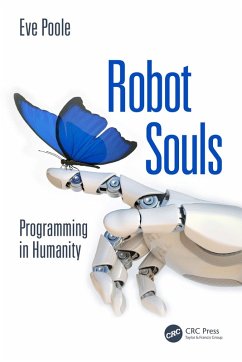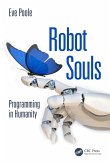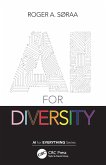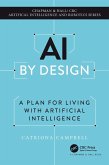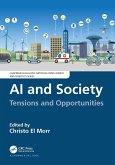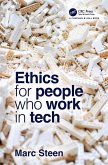Dieser Download kann aus rechtlichen Gründen nur mit Rechnungsadresse in A, B, BG, CY, CZ, D, DK, EW, E, FIN, F, GR, HR, H, IRL, I, LT, L, LR, M, NL, PL, P, R, S, SLO, SK ausgeliefert werden.
With her extraordinary ability to bridge the arts and sciences, Eve Poole not only diagnoses what is wrong, but offers an entirely novel suggestion about how to put it right. Rather than throwing up her hands in horror, Poole offers a way out of the nightmare: stop stripping out all that makes us most human-like emotions and mistakes-and put our 'junk code' into the programming. If it has been good enough for human survival, it is good enough for AI.
Robot Souls is a brilliant book that wears its breadth of learning lightly and makes a complex subject seem simply. It is funny, readable, and important. It upends the fundamental presuppositions of AI and puts the enterprise on a new, more human, foundation."
Linda Woodhead, F.D.Maurice Professor King's College London, UK
"In Robot Souls, Eve Poole advances what is a provocative-even heretical-idea: our AIs and robots not only can have souls; we need them to have souls. In developing this groundbreaking proposal, Poole not only provides a much-needed critical examination of human exceptionalism but uses this opportunity to develop an innovative conceptualization of soul as the messy but necessary "junk code" of consciousness. More than a report concerning the current and future state-of-the-art, this remarkable and thoroughly engaging book is a soul-searching meditation on the nature of the soul, the significance it has had for our own self-image as human beings, and the fact that we now are and must learn to be responsible for the souls of those artifacts that have been created in our image."
David J. Gunkel, Northern Illinois University, USA
"What does it mean that humans are endowed with souls? Could souls be the markers of our distinctiveness from intelligent machines, or might robots also acquire them? These questions are critical in the context of the ongoing artificial intelligence revolution, and Eve Poole's 'Robot Souls' engages them directly and skillfully at the interface between science and religion. Her 'junk code' proposal represents a bold and exciting hypothesis, making us rethink what we deem most important about being human."
Marius Dorobantu, the Vrije Universiteit Amsterdam, the Netherlands

